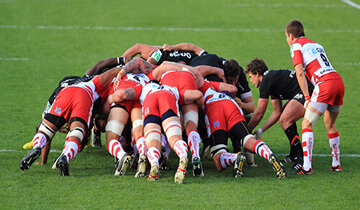How Promotion and Relegation Works
In a promotion and relegation system, the worst-performing teams at the end of each season are relegated to a lower division for the following season. Conversely, the top teams from lower divisions are promoted to the league above.
For example, in England’s widely followed Premier League, the bottom three teams at the end of the season are relegated to the second-tier Championship division. Meanwhile, the top two teams from the Championship are promoted to the Premier League for the following season. This cycle repeats annually between the various professional tiers in England.
The number of teams promoted and relegated varies by league, but the principle remains the same - poorly performing teams are replaced by top teams from lower divisions each season.
Benefits of Promotion and Relegation
- Rewarding merit - Teams are rewarded or punished based solely on their on-field performance. The system is seen as more meritocratic.
- Preventing complacency - Relegated teams lose substantial revenue. This threat prevents stagnation and complacency among bottom-tier teams.
- Maintaining interest - Fans of losing teams maintain interest and hope if they can finish top of their division and earn promotion.
- Providing opportunities - Smaller teams can rise through the ranks and reach the top tier through consistent performance. This provides fans hope.
- Adding excitement - Promotion and relegation battles add drama and interest during the full season. There is no concept of teams being “mathematically eliminated” from contention.
Despite these advantages, promotion and relegation remains controversial and is still not utilized in major American sports leagues. Still, it is an integral part of soccer leagues worldwide. The system emphasizes meritocracy and provides incentives that preserve competition throughout all levels of play.
Promotion and Relegation in Sports Leagues
How It Works
Leagues are organized into a hierarchy of divisions, usually numbering from 1 at the top to increasing numbers for each lower division. For example, England’s football leagues have the Premier League (Division 1), the Championship (Division 2), League One (Division 3), and League Two (Division 4).
The number of teams promoted and relegated each season is fixed and agreed upon ahead of time. Typically a few of the bottom teams in a division are relegated, while a few of the top teams from the division below are promoted to take their place. For example, in the Premier League the bottom 3 teams are relegated, while the top 2 teams from the Championship are promoted.
Relegated teams move down a division and have to play at a lower level the following season. This is usually seen as a blow to a club’s finances and reputation. Meanwhile, promoted teams move up a division and enjoy the benefits of playing at a higher level.
Playoff Systems
Some leagues employ a playoff system alongside direct promotion and relegation. Teams finishing just below the automatic promotion places enter playoffs to compete for the final promotion spot. This gives more teams a chance at promotion and adds excitement for fans.
Pros and Cons
Proponents of promotion/relegation praise the competitiveness it brings as teams fight to either stay up or gain promotion. It gives smaller teams a chance to play at higher levels if they perform well. Critics argue it can make leagues too unbalanced if teams constantly bounce up and down divisions. However, most leagues around the world use some form of pro/rel system.
The Dreaded Relegation Zone
How Relegation Works
The number of relegation places varies by league, but typically the bottom two or three teams will get relegated. In England’s Premier League, the bottom three teams are relegated. In Germany’s Bundesliga, the bottom two are sent down. Getting stuck in the relegation zone puts a club’s future in jeopardy.
For big clubs with large budgets and high expectations, relegation can be a catastrophe. The financial implications are huge. Revenue drops sharply in a lower division, making it difficult to retain top players. Sponsorship deals dry up. Gate receipts and TV money are severely impacted. Relegation can throw a club into a vicious cycle of declining performance and financial hardship.
Avoiding the Drop
Once clubs find themselves in the bottom few places, their sole focus becomes avoiding relegation. Managers are often sacked if they cannot lift the team out of the relegation fight. New players may be brought in to add quality and spur a late-season revival. Clubs in the drop zone tightly pack their schedules with must-win games and rack up frequent flyer miles traveling all over in search of points.
For supporters, watching your team get sucked into a relegation battle is agonizing. Optimism fades to gloom with each passing week in the basement. The dread of dropping down a division looms large. Critics call for widespread changes. The mood is tense.
Going Down
When the season ends, the awful confirmation arrives for a few ill-fated clubs: relegation is now a reality. Angry fans vent their frustration. Finances take a hit. Top players jump ship. A long, challenging road back to the top division lies ahead. For soccer clubs, the relegation zone is a danger zone no one wants to visit.
The Impacts of Promotion and Relegation in Sports Leagues
Financial Impacts
One of the biggest impacts is on the finances of clubs. Getting promoted to a top league can bring huge financial rewards through increased revenues from television, sponsorship, ticket sales, and merchandise. By one estimate, promotion to the English Premier League leads to an average revenue increase of £170 million per club. On the flip side, being relegated from the Premier League causes estimated revenue losses of £100 million as income streams from TV and sponsors dry up.
The much higher revenues in top leagues mean promotion is hugely financially rewarding, while relegation can cripple teams who have overspent trying to stay up. The financial instability caused by relegation is a major criticism of the system.
Competitive Impacts
Many argue promotion and relegation adds excitement and keeps leagues more competitive. Even late in the season, there are incentives for teams to keep performing. Teams near the top will fight intensely for the right to get promoted. Those near the bottom will battle desperately to avoid the cost and shame of relegation.
There are always some teams with little chance of winning the league title. But the need to gain promotion or avoid relegation keeps their seasons meaningful and adds suspense. Supporters have more reason to stay engaged. In contrast, seasons can become dull for mid-table teams in leagues without promotion/relegation.
Player Impacts
Relegation can start an exodus of a team’s best players who understandably want to keep playing at the highest level. Meanwhile, newly promoted sides often need to invest in better players to have any hope of surviving in the higher division. Buying and selling of players between divisions is common.
The best players gravitate toward teams in top leagues. Promotion and relegation makes it possible for initially smaller teams to eventually reach the top and attract star players themselves. Players on recently promoted teams get a chance to showcase their talents at the highest level.
In Summary
While promotion and relegation causes financial instability for some clubs, it keeps competition vibrant and allows new teams to rise up the ranks over time. The system makes seasons more exciting for supporters right through to the end. For better or worse, promotion and relegation has a significant impact at every level of a sports league.
The Debate Over Promotion and Relegation in English Football
Reasons For Retaining Promotion and Relegation
Competitive Integrity
The possibility of promotion or relegation based on performance ensures that teams at all levels have something to play for throughout the season. There is no reward for intentionally losing or ’tanking’ just to get a better draft pick in the following season.
High Stakes
The playoff tournaments between teams near the top and bottom of each division, along with the end-of-season promotion/relegation battles, provide exciting ‘win or go home’ drama. Fans are engaged knowing their team’s very league status is on the line.
Open Access
Ambitious teams and their supporters can realistically hope to work their way up from lower leagues to top-flight football. This keeps more franchises and fan bases engaged.
Reasons For Abolishing Promotion and Relegation
Financial Disparity
There is an ever-widening gulf between the revenues of the top Premier League teams and those in lower tiers. Relegated teams often struggle financially.
Punishing One Poor Season
It’s arguable that teams shouldn’t face relegation after just one disappointing season. Demotion can do long-term damage to a club’s finances and fanbase.
Instability
Relegation and promotion causes constant turnover in league memberships. This makes it hard for teams and leagues to maintain stable identities and rivalries.
There are good arguments on both sides of this issue, and reasonable people can disagree on the ideal structure. But for now at least, promotion and relegation remains integral to English football’s culture and identity. The system has helped produce some of the most dramatic moments in sports history. Most English fans likely hope this never changes, even if some reforms might be welcomed. The thrills and consequences of promotion and relegation continue to captivate audiences each season.
Conclusions
Promotion and relegation is an integral part of many sports leagues around the world, especially in European soccer. The system provides incentives for teams at both ends of the standings to keep competing and allows smaller clubs the chance to work their way up to top divisions. However, the financial instability caused by relegation is a major concern. Overall, promotion and relegation adds drama and meritocracy to leagues, though some reforms to address financial disparities may be warranted. The system seems firmly entrenched in many leagues due to its competitive and cultural benefits.







































